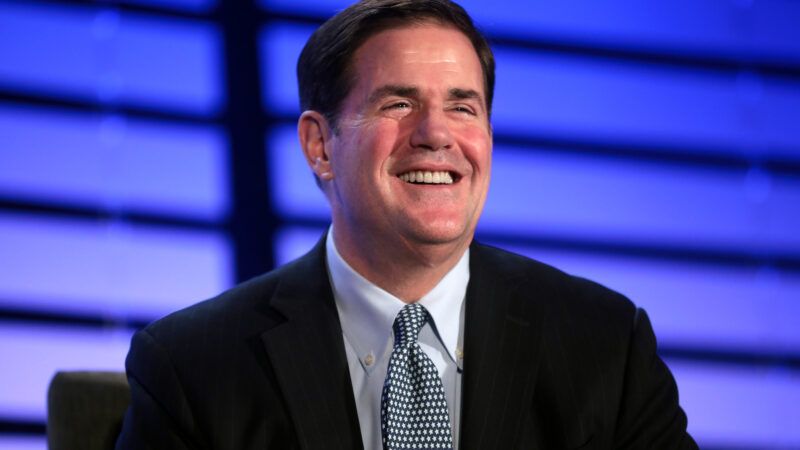COVID-19 Edicts Highlight the Importance of Structural Limits on Government Power
The national eviction moratorium and Arizona’s business restrictions were based on dubious assertions of authority.

By the time he took office, President Joe Biden had abandoned his campaign promise to require that all Americans cover their faces in public, admitting that such an order was beyond his authority. But that concession did not stop the Biden administration from imposing a nationwide eviction moratorium with an equally dubious legal basis.
Last week a federal judge in Texas ruled that the Constitution does not give the federal government the power to decree that landlords across the country must house tenants who do not pay their rent. That case, along with a challenge to Arizona Gov. Doug Ducey's pandemic powers that the state Supreme Court will hear next Tuesday, is part of an overdue reexamination of the assumption that politicians can do whatever they deem necessary to fight COVID-19.
The eviction moratorium, which the Centers for Disease Control and Prevention (CDC) originally issued in September, was renewed by Congress in December, then extended again by the Biden administration. It is based on a breathtakingly broad reading of the CDC director's authority to "take such measures" he "deems reasonably necessary" to stop the interstate spread of communicable diseases.
The CDC reasoned that evicted tenants might "become homeless" or "move into close quarters in shared housing," thereby increasing the risk of virus transmission. That rationale suggests the CDC's authority is vast, encompassing any policy that is plausibly related to disease control, including business closures and a national stay-at-home order as well as the face mask requirement that Biden ultimately decided could not be imposed by executive fiat.
Even with congressional approval, Judge J. Campbell Barker of the U.S. District Court for the Eastern District of Texas ruled last week, blocking the enforcement of rent obligations exceeds the federal government's authority to regulate interstate commerce. Barker noted that the blanket ban on evictions, which the government claimed it could impose even in the absence of a public health threat like COVID-19, was historically unprecedented, did not involve interstate commerce, and was not necessary to enforce a broader scheme of economic regulation.
Barker emphasized that the case had no bearing on the constitutionality of state or local eviction regulations. His ruling hinged on the distinction between the federal government, which has no more authority than the Constitution grants, and the states, which retain a broad "police power" that extends much further.
The challenge to Ducey's COVID-19 rules, by contrast, is based on the division of powers between the governor and the legislature. Arizona State University law professor Ilan Wurman, who represents a group of bar owners, argues that Ducey's restrictions, which forced his clients to close their businesses for a total of nearly five months and continue to threaten their livelihoods, amount to unconstitutional legislation by the executive branch.
Ducey's regulations are based on a statute that purports to grant him "all police power" during an emergency that he alone has the authority to declare. As Ducey reads that law, Wurman notes, "the Governor is empowered to do anything that in his mind is necessary to resolve the emergency."
In practice, that has included detailed, ever-shifting codes of conduct for various industries that ordinarily could be regulated only based on specific legislative authority. But the power claimed by Ducey goes even further.
"The Governor could order everyone to stay home for six months," Wurman says. "He can pick and choose what businesses to leave open and what businesses to close. He can tax the rich and redistribute to the poor to help them seek shelter."
Last fall, the Michigan Supreme Court concluded that a similarly broad authority granted by that state's legislature violated the separation of powers. The court emphasized "the sheer magnitude of the authority in dispute" and "its concentration in a single individual."
Pandemic-inspired restrictions have clearly demonstrated the necessity of explicitly protected rights such as religious freedom. But as these cases show, structural limits on government, which tell us who may exercise which powers, are at least as important in protecting liberty from overreaching politicians.
© Copyright 2021 by Creators Syndicate Inc.


Show Comments (32)